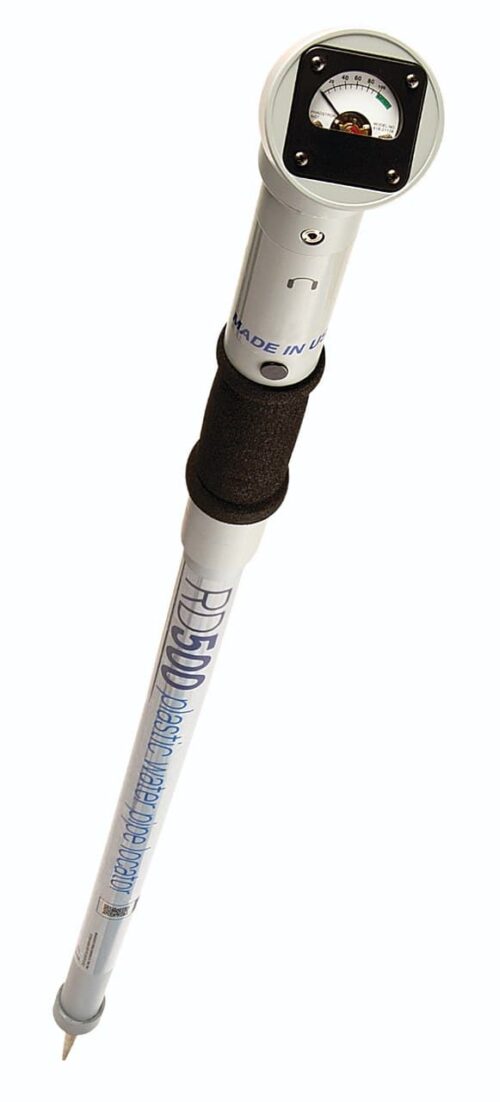Leak detectors
Showing the single result
Water utilities are constantly under time and cost pressure to reduce water losses; Radiodetection is focused on providing solutions for water contractors who need to quickly and accurately locate and route plastic water pipes, either to install additional services or to repair leaks.
Leak detectors are devices used to identify and locate leaks of gases or liquids in various systems or environments. These leaks could be in plumbing systems, gas pipelines, refrigeration systems, HVAC systems, or other industrial applications. Leak detectors are essential for maintaining safety, preventing environmental damage, and minimizing loss of resources. Here are some common types of leak detectors:
- Electronic Leak Detectors: These detectors use electronic sensors to detect the presence of gases, such as refrigerants (e.g., R-134a, R-410a) or combustible gases (e.g., methane, propane). They work by sensing changes in gas concentration or by detecting specific gases through ionization, infrared absorption, or semiconductor-based technologies. Electronic leak detectors are commonly used in HVAC/R systems, automotive air conditioning, and industrial applications.
- Ultrasonic Leak Detectors: Ultrasonic leak detectors detect the high-frequency sound waves produced by leaking gases or liquids. They work by converting ultrasonic signals into audible or visual cues for the operator. Ultrasonic detectors are highly sensitive and can pinpoint leaks in pressurized systems, such as compressed air lines, steam systems, and vacuum systems. They are also effective for detecting leaks in sealed enclosures or under insulation.
- Dye Penetrant Testing Kits: Dye penetrant testing involves applying a fluorescent or colored dye to the suspected leak area. The dye penetrates into the smallest cracks or openings and is then illuminated with ultraviolet light. This makes the leak visible under UV light, allowing for precise identification and localization. Dye penetrant testing kits are commonly used in plumbing systems, automotive repairs, and industrial maintenance.
- Bubble Leak Testers: Bubble leak testers are simple and cost-effective devices used to detect leaks in pressurized systems. They involve applying a soapy solution to the suspected leak area and observing the formation of bubbles where gas is escaping. Bubble leak testers are often used in plumbing systems, gas pipelines, and pneumatic systems.
- Smoke Detectors: Smoke detectors are occasionally used for detecting leaks in ventilation systems, ductwork, and other confined spaces. A non-toxic smoke generator is introduced into the system, and any leaks are identified by the presence of smoke escaping from openings or cracks.
- Helium Leak Detectors: Helium leak detectors are highly sensitive instruments used for detecting very small leaks, typically in vacuum systems or sealed enclosures. They work by introducing helium gas into the system and detecting escaping helium molecules using mass spectrometry or other sensitive detection methods.
When selecting a leak detector, consider factors such as the type of gas or liquid being detected, the sensitivity and accuracy required, the application environment, and the ease of use. Proper training and maintenance are essential to ensure reliable and accurate leak detection results.
Buy Leak detectors in Uzbekistan, in Tashkent


